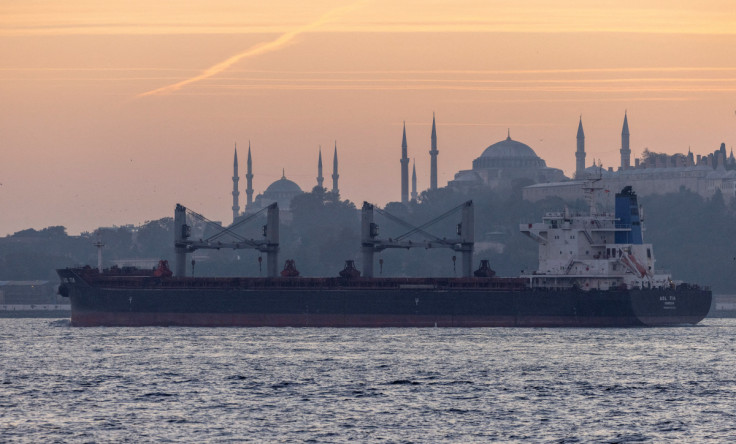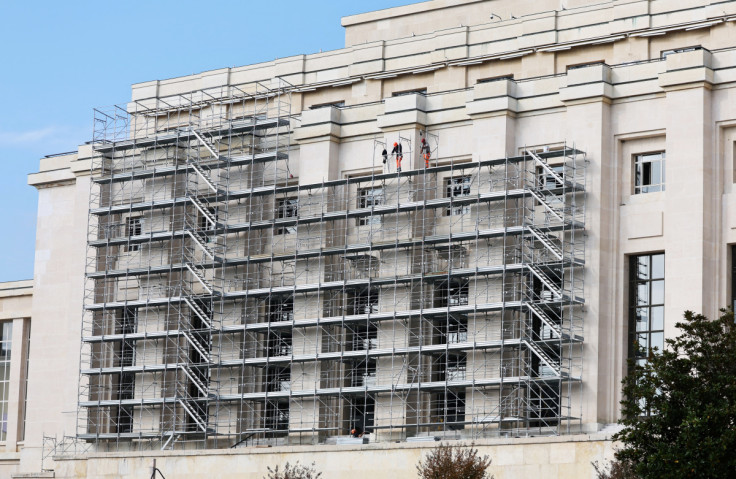U.N., Russian Officials Met To Discuss Black Sea Grains Deal

Senior United Nations officials met with a Russian delegation in Geneva on Friday to discuss Moscow's grievances about the Black Sea grains export initiative and address the need for unimpeded food and fertilizer exports, a U.N. spokesperson said.
The negotiations come eight days before the deal brokered by the U.N. and Turkey in July is due to be renewed. The accord has helped stave off a global food crisis by allowing the export of food and fertilisers from several of Ukraine's Black Sea ports.
Moscow has indicated that it could quit the deal, set to expire on Nov. 19, if progress is not made on its concerns.
Russia suspended its participation for four days last month in response to a drone attack on Moscow's fleet in Crimea that it blamed on Ukraine. Kyiv has not claimed responsibility and denies using the grain programme's security corridor for military purposes.
U.N. aid chief Martin Griffiths, who heads talks on Ukrainian exports, and senior U.N. trade official Rebeca Grynspan, met with Russia's Deputy Foreign Minister Sergei Vershinin at the U.N. office in Geneva, the international body said.
In a statement following talks, the U.N. said the participants discussed the July deal and held constructive talks on its continuation.
"Participants also remain engaged in the implementation of the Black Sea Grain Initiative and held constructive discussions on its continuation," the U.N. said.
The talks included updates on progress in facilitating the unimpeded export of food and fertilizers from Russia to global markets, according to the statement.
"The U.N. remains committed to address the global fertilizer market crunch where farmers, especially smallholder farmers from the developing world, are priced out of production due to high input costs," the U.N. said.
"The world cannot afford to let global fertilizer accessibility problems become a global food shortage, therefore the U.N. calls on all actors to expedite the removal of any remaining impediments to the export and transportation of fertilizers to countries most in need."
The Dutch government said on Friday it would release a consignment of 20,000 tonnes of Russian fertilizer that had been stuck in Rotterdam port due to sanctions, following a request from the U.N., adding that the shipment is due to be sent to Malawi via the World Food Program.
That shipment is expected to depart for Malawi in the coming week, the U.N. said in the statement.

© Copyright Thomson Reuters 2025. All rights reserved.





















